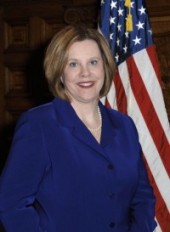Georgia’s medical marijuana proposal took what its chief sponsor called “a giant leap’’ forward Thursday by passing a Senate committee after a long, emotional hearing.
A divided Senate Health and Human Services Committee approved House Bill 1, sponsored by Rep. Allen Peake (R-Macon), after hearing testimony on issues ranging from medical treatment and patients’ pain to drug addiction and a lack of research data.
Peake said the legislation, if ultimately passed by the Legislature, can bring home the Georgia parents who are living with their ailing children in Colorado to give the youngsters access to medical cannabis. Colorado’s relatively loose marijuana laws have made it a magnet for families whose children need the treatment.
“The families are the real heroes in this,’’ Peake said after the committee approved the bill.
The vote came after a Senate panel introduced a substitute bill that included a provision for clinical trials.
Strict limits on use
The measure, which now goes to the Senate floor, establishes a process whereby patients with one of eight diagnoses, and a recommendation from a doctor, would register for cannabis oil use with the state Department of Public Health.
An individual, or that person’s caregiver, would be issued a registration card from Public Health that would allow them to possess the cannabis oil. (Possession would remain illegal for the general public.)
The eight diagnoses in line for this treatment are cancer; ALS; seizure disorders related to epilepsy or trauma related head injuries; multiple sclerosis; Crohn’s disease; mitochondrial disease; Parkinson’s disease; and sickle-cell disease.
The Senate panel defeated some attempts to water down the House Bill’s provisions, including an attempt to lower the permissible THC level from 5 percent to 0.3 percent. THC is the ingredient in marijuana that makes a person “high.”
Earlier in the hearing, which lasted more than three hours, opponents with a variety of perspectives testified against the legislation.
Religious leaders told the Senate panel that they preferred an alternative Senate bill that would set up clinical trials for medical marijuana for residents under 18 years old.
“I respect the intentions of everyone who has worked on this bill, and the trauma the parents have gone through,’’ said Virginia Galloway of the Faith and Freedom Coalition. But she said the House Bill could set up a “slippery slope’’ toward full-scale legalization of marijuana.
Addiction medicine specialists also argued against the measure.
Dr. David Atkinson of Dallas, Texas, said there has not been sufficient research to prove the effectiveness and safety of medical cannabis.
Atkinson said he understands the frustration of parents. But he added that due to the national debate on medical marijuana, “youth are getting the message that cannabis is not harmful.’’
“The marijuana legalization movement has been very vocal,’’ Atkinson said.
Dr. Paul Earley, an addiction medicine physician in Atlanta, expressed his worry that medical marijuana “would find its way into the hands of abusers,’’ including children and young adults.
Countering the critics
The bill also had vocal supporters on hand. Parents of children suffering from seizures and other conditions, along with patients with medical conditions of their own, made emotional entreaties Thursday in support of the medical cannabis effort.
Vince Sievert of LaGrange, whose daughter Miranda has intractable seizures from epilepsy, said she has had a sharp reduction in seizures since she began taking cannabis oil in Colorado.
“She needs to be able to come home,” he told lawmakers.
Mike Hopkins of Covington told the panel that two of his four children have already died from seizure-related problems. A third child, a daughter, is in Colorado now, and he said she is doing much better in controlling her seizures thanks to the availability of medical cannabis.
Lillie Thomas of Stone Mountain said she wants better options for sickle-cell patients such as her daughter, now 26. “I believe anything is better than a 3-year-old given Demerol’’ and hallucinating, Thomas said.
But perhaps the most pivotal testimony came from a physician. Dr. James Smith, who works at Gwinnett Medical Center, has a young daughter in Colorado whose seizures, he says, are being controlled by cannabis oil, after pharmaceuticals failed to bring any improvement.
“I have my daughter back,’’ he said. “She’s no longer a zombie.” Making cannabis oil legal in Georgia would allow the daughter and the rest of his family to come home from Colorado for good.
Peake, the legislator who is spearheading the bill, said two manufacturers are willing to ship the cannabis oil to Georgia.
There were originally nine diagnoses listed for treatment in the medical cannabis bill, but the revised Senate version removed fibromyalgia from the list. Peake said after the vote that having to see fibromyalgia left off was “the biggest disappointment’’ of the day.
Peake thanked the chairman of the Senate committee, Sen. Renee Unterman (R-Buford), for her work in crafting the revised bill.
Unterman acknowledged after the hearing that there was still some Senate disagreement over the bill.
“My greatest hope is it doesn’t get amended on the floor,’’ she said. “It has been thoroughly vetted.”



